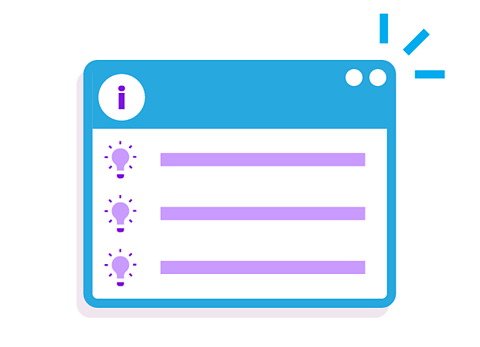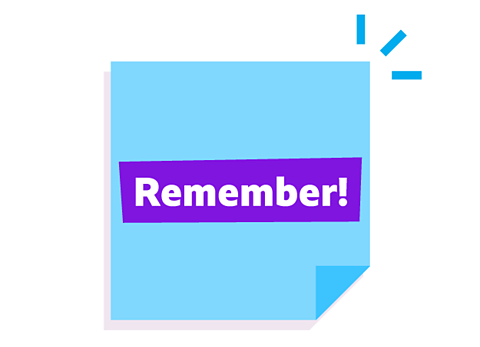Key points about adverbial pronouns 'y' and 'en' in French

Y can mean тthereт or тit/themт when it replaces an object introduced by the prepositionA preposition is a word such as 'at', 'for', 'with', 'into' or 'from' which is usually followed by a noun or pronoun. They are used to show where something is in place or time. У
Some useful verbA word used to describe an action or state of being. followed by У are croire У (to believe in), sтintУЉresser У (to be interested in) and rУЉflУЉchir У (to think about/reflect on)
En can mean тof it/of themт and replaces nouns in expressions about quantity, such as jтen achУЈte cinq (I buy five of them)
En also replaces an object introduced by the preposition de
Useful verbs followed by de are avoir besoin de (to need), faire de (to do a sport or activity) and rУЊver de (to dream about)
The adverbial pronoun тyт
The pronoun y can either mean тthereт, to replace the name of a location in a sentence, or it can replace an object (not a person) that is introduced by the preposition У , to mean тitт or тthemт.
Using тyт to mean тthereт
When using the pronoun y to mean тthereт, the same position rules apply as for direct object pronouns. The y comes between the subject or subject pronoun and the verb.
For example:
Elle est У la banque. Elle y est pour changer de lтargent. т She is at the bank. She is there to change money.
Je suis allУЉ(e) en France avec ma famille. Nous y sommes allУЉ(e)s en voiture. т I went to France with my family. We went there by car.
Using тyт to mean тit' or 'themт
The adverbial pronoun y is often used to replace a previously mentioned or implied place or location, and it usually translates as 'there' in English.
The concept of y is broader however, and it can also be used to replace any phrase that begins with У , en, dans, or other prepositions indicating location, and it can mean 'it' or 'them' depending on the context.
For example:
Il sтintУЉresse У lтhistoire depuis longtemps. Il sтy intУЉresse depuis longtemps. т Heтs been interested in history for a long time. Heтs been interested in it for a long time.
Jтaime jouer au foot. Jтy joue trois fois par semaine. т I like playing football. I play it three times a week.
Useful verbs followed by 'У '
When y is used with verbs followed by У , it typically replaces the object of the preposition У , referring back to something previously mentioned. The object can be a thing, a place, or a concept/idea.
The y replaces the 'У + noun' phrase to avoid repetition.
Here are some useful verbs that are followed by У and can use y as a pronoun:
| Sorry, something went wrongCheck your connection, refresh the page and try again. | to believe in |
| Sorry, something went wrongCheck your connection, refresh the page and try again. | to pay attention to/be careful of |
| Sorry, something went wrongCheck your connection, refresh the page and try again. | to be interested in |
| Sorry, something went wrongCheck your connection, refresh the page and try again. (+ sport) | to play (sport) |
| Sorry, something went wrongCheck your connection, refresh the page and try again. | to think of/about (not opinion) |
| Sorry, something went wrongCheck your connection, refresh the page and try again. | to think about/reflect on |
For example:
Il faut faire attention У vos devoirs. Il faut y faire attention. т You should pay attention to your homework. You should pay attention to it.
Je pense aux vacances. Jтy pense tous les jours. - Iтm thinking about the holidays. I think about them every day.
The adverbial pronoun тenт
The adverbial pronoun Sorry, something went wrongCheck your connection, refresh the page and try again. replaces nouns in phrases about quantity, or with verbs that are normally followed by de. Its translation in English varies depending on the meaning of the phrase.
Using 'en' in a sentence
Like y, en follows the same position rules as direct object pronouns. The en comes between the subject or subject pronoun and the verb.
Here are some examples in different tenses:
Vous voudriez des oeufs? Oui, jтen voudrais six, sтil vous plaУЎt. т Would you like some eggs? Yes, Iтd like six (of them), please.
Il a besoin dтun nouveau portable. Il en a besoin car il a perdu son vieux portable. т He needs a new phone. He needs one because he has lost his old phone.
Elle aime УЉcouter de la musique et elle va en УЉcouter tous les jours. She likes listening to music and she is going to listen to it every day.
Useful verbs followed by 'de'
En is used with verbs followed by de to replace the object of the preposition de, which can be a thing, a place, a quantity, or a concept/idea.
It typically translates in English as 'some', 'any', 'of it', 'about it', 'from there', etc. It goes in front of the verb.
Here are some useful verbs that are followed by de and can use en as a pronoun.
| Sorry, something went wrongCheck your connection, refresh the page and try again. (+ infinitive) | to need |
| Sorry, something went wrongCheck your connection, refresh the page and try again. (+ infinitive) | to feel like |
| Sorry, something went wrongCheck your connection, refresh the page and try again. (+ infinitive) | to intend to |
| Sorry, something went wrongCheck your connection, refresh the page and try again. (+ sport/activity) | to do |
| Sorry, something went wrongCheck your connection, refresh the page and try again. (+ musical instrument) | to play (an instrument) |
| Sorry, something went wrongCheck your connection, refresh the page and try again. | to think of/about (opinion) |
| Sorry, something went wrongCheck your connection, refresh the page and try again. | to dream of/about |
For example:
Quтest-ce que tu en penses ? - What do you think of it?
Jтen rУЊve depuis des annУЉes. - Iтve been dreaming about it for years.
Le sportтЏ? Jтen fais tous les mardis. - Sport? I do it every Tuesday.
Je vais en avoir besoin. - I am going to need it.
Elle nтen a pas envie. - She doesnтt feel like it.

Remember
Learn verbs and their prepositions together, so that you can use y and en to replace the У and the de correctly.
Higher Tier - Quiz - Adverbial pronouns 'y' and 'en'
Practise what youтve learned about the adverbial pronouns y and en with this quiz for Higher Tier.
Now youтve learned about adverbial pronouns, why not explore direct object pronouns?
More on Pronouns
Find out more by working through a topic
- count7 of 7

- count1 of 7

- count2 of 7

- count3 of 7
